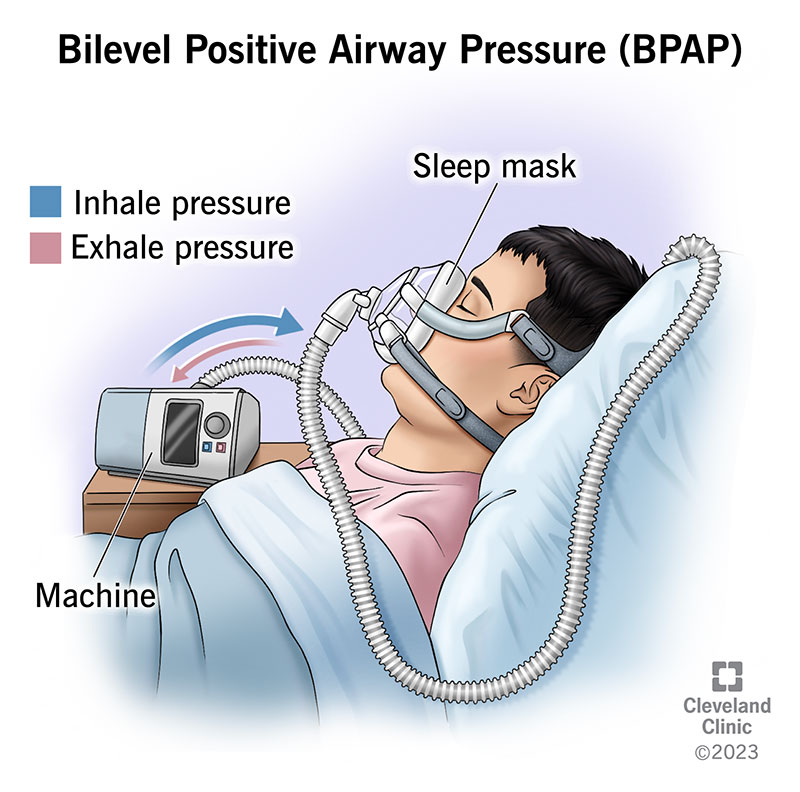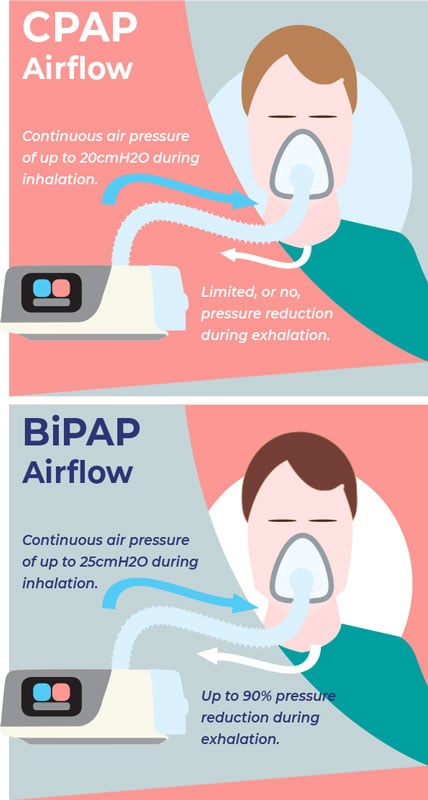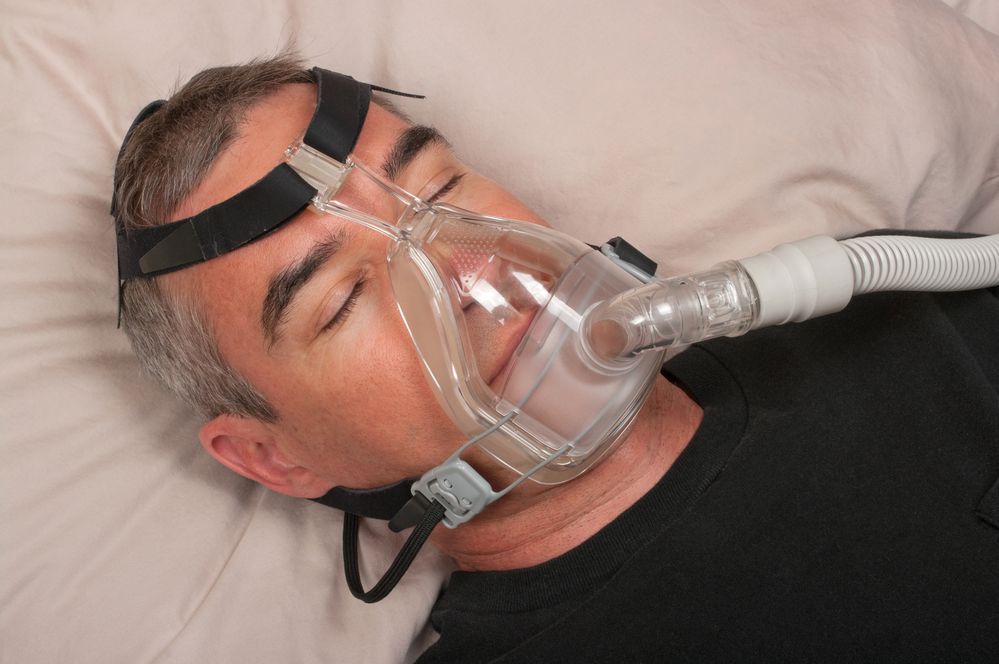Your Guide to Affordable BiPAP Rental in Your Location
Your Guide to Affordable BiPAP Rental in Your Location
Blog Article
Bipap vs. CPAP: Which Is the Best for Your Rest Disorder?
When navigating the intricacies of sleep conditions, the choice between BiPAP and CPAP therapy is a crucial factor to consider. While CPAP provides a constant air flow ideal for obstructive sleep apnea, BiPAP's twin stress setups may improve convenience for those with even more detailed respiratory concerns.
Comprehending Sleep Disorders
Rest disorders incorporate a variety of problems that disrupt normal sleep patterns, influencing both the top quality and duration of rest. These conditions can show up in different kinds, consisting of insomnia, sleep apnea, narcolepsy, restless leg syndrome, and parasomnias. Each problem provides special difficulties, usually bring about substantial daytime exhaustion, cognitive impairment, and psychological disruptions.
Sleep problems is identified by problem dropping or remaining asleep, while sleep apnea involves repeated disruptions in breathing during sleep, frequently leading to fragmented remainder. Narcolepsy, on the various other hand, is noted by extreme daytime sleepiness and unexpected rest assaults. Agitated leg disorder triggers uncomfortable feelings in the legs, prompting an uncontrollable impulse to move them, which can additionally impede the capacity to sleep.
The influence of rest problems expands beyond private health and wellness, affecting general efficiency, partnerships, and top quality of life. Recognizing the details nature of each problem is crucial for effective medical diagnosis and therapy. As rest wellness ends up being progressively acknowledged as a crucial element of overall well-being, dealing with these disorders is important for enhancing both sleep top quality and day-to-day functioning.
Exactly How CPAP Works
Continuous Favorable Respiratory Tract Stress (CPAP) therapy is frequently employed as a primary therapy for obstructive sleep apnea (OSA) The device of CPAP includes using a device that provides a constant stream of air via a mask used throughout sleep. This air flow preserves positive stress in the air passage, protecting against the collapse or obstruction of the throat that can happen during rest.
When an individual takes in, the CPAP equipment gives a constant circulation of air, guaranteeing that the airway remains open - BiPAP Rental. This not only relieves the symptoms of OSA, such as snoring and interfered with sleep patterns, but additionally minimizes the involved wellness dangers, consisting of cardiovascular difficulties and daytime tiredness
The pressure settings on a CPAP machine can be customized to satisfy individual client needs, typically identified with a rest research. In general, CPAP therapy has actually been revealed to significantly improve the high quality of rest and general wellness for people enduring from obstructive rest apnea.
Just How BiPAP Functions
BiPAP, or Bilevel Favorable Airway Stress, is a specialized type of non-invasive ventilation that is particularly advantageous for clients with conditions such as complicated sleep apnea or respiratory system disorders. Unlike CPAP, which provides a constant stream of air at a single pressure, BiPAP provides two distinctive stress setups: a greater inspiratory pressure for breathing and a lower expiratory stress for exhalation. This dual-pressure approach permits for much easier breathing, lowering the effort needed throughout exhalation.
The device operates via a mask fitted over the nose or mouth, connected to a device that creates air pressure. When the individual breathes in, the equipment provides the greater additional hints stress to aid with airflow, guaranteeing that the airway continues to be open. Upon exhalation, the device immediately lowers the stress, making it extra comfy for the person to breathe out.

Key Distinctions Between BiPAP and CPAP

On the other hand, BiPAP (Bilevel Positive Air passage Stress) provides 2 different pressure setups: one for breathing and a lower one for exhalation. This double pressure system permits for more comfy breathing, especially for people that battle with breathing out against a constant pressure. BiPAP is often recommended for clients with complicated sleep apnea, persistent obstructive pulmonary disease (COPD), or those that need extra assistance during sleep.
Moreover, the complexity of BiPAP gadgets commonly causes a higher price and needs much more mindful titration than CPAP. BiPAP Rental. Recognizing these key distinctions can help in acknowledging which gadget might be extra ideal for certain sleep problems, setting the groundwork for enlightened therapy choices
Choosing the Right Treatment
The choice between BiPAP and CPAP therapy primarily pivots on the particular attributes of the sleep disorder, the patient's overall health and wellness, and their comfort with the gadget. CPAP, which supplies a constant stream of air, is frequently prescribed for obstructive rest apnea (OSA)
Conversely, BiPAP supplies 2 levels of stress: one for inhalation and a reduced one for exhalation. This dual pressure system is beneficial for individuals with complicated sleep apnea or those who experience problem breathing out against a continuous stress. Furthermore, BiPAP is commonly suggested for people with respiratory conditions, such as persistent obstructive lung disease (COPD), where differing pressure settings can enhance convenience visit and compliance.
Ultimately, a detailed analysis by a sleep expert, consisting of a sleep research study, can help figure out which treatment straightens finest with the client's needs. Factors such as convenience, simplicity of use, and particular clinical conditions need to likewise be considered to maximize treatment end results.
Verdict
In recap, both BiPAP and CPAP serve unique objectives in the management of sleep conditions. CPAP works for obstructive rest apnea with consistent air flow, while BiPAP offers double stress settings that enhance comfort for those with complex rest apnea or breathing problems. The option between these treatments must be assisted by private needs and conditions, requiring a thorough examination by a rest specialist to make sure ideal treatment end results and boosted quality of rest.

Generally, CPAP therapy has been revealed to substantially boost the quality of sleep and overall wellness for people enduring from obstructive sleep apnea.
BiPAP is frequently suggested for individuals with complex sleep apnea, persistent obstructive pulmonary disease (COPD), or those who need additional assistance during sleep.
CPAP is efficient for obstructive rest apnea via regular air flow, while BiPAP provides double stress settings that improve comfort for those with complicated sleep apnea or respiratory system concerns.
Report this page